SHINING GIRLS – Limited Series
Years after a brutal attack left her in a constantly shifting reality, Kirby Mazrachi learns that a recent murder is linked to her assault.
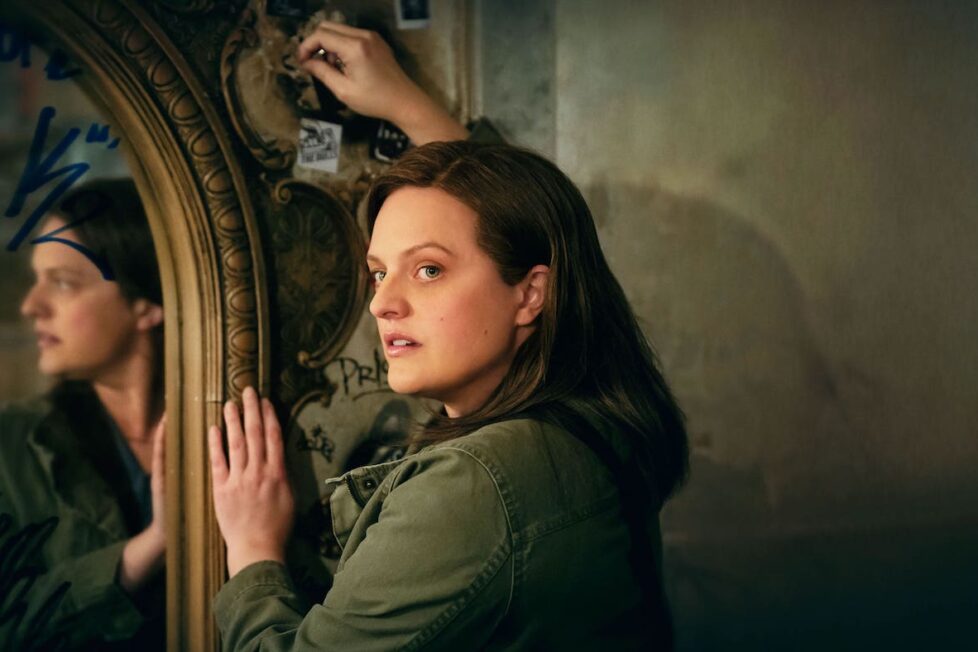
Years after a brutal attack left her in a constantly shifting reality, Kirby Mazrachi learns that a recent murder is linked to her assault.


Elisabeth Moss (The Invisible Man) again takes centre stage for this eight-part drama about the suffering of women at the hands of a man who can seemingly play with time. Based on Lauren Beukes’ best-selling 2013 novel, Shining Girls is part metaphysical sci-fi, part journalistic procedural drama, and part crime drama. However, fans of true crime should be aware the science fiction elements quickly start to eclipse the ‘whodunnit’ plot.
We meet Kirby Mazrachi in 1992 Chicago, living with her musician mother (The Leftovers’ Amy Brenneman) in a modest apartment, and working in the basement archives of the Chicago Sun-Times collecting clippings and helping journalists with their research. Kirby soon learns that crime reporter Dan Velazquez (Wagner Moura, best known for playing Pablo Escobar in Narcos) is investigating the murder of Julia Madrigal after her mutilated body was found stuffed in a water pipe. Kirby recognises the signs and patterns of the murder from her own attack.
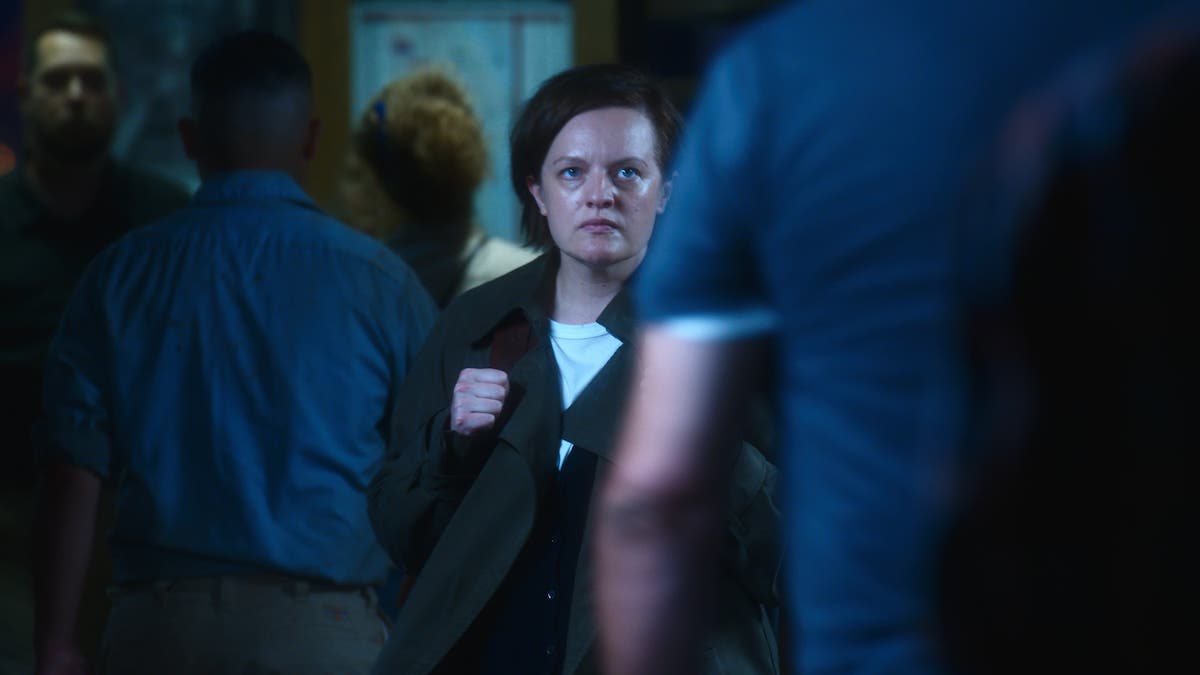
We then meet Harper (Jamie Bell), who appears to be bouncing metaphysically through time; an all-American misogynist with a penchant for watching women through windows. Kirby recognises his voice on the tape from Julia’s murder, as it belongs to a man whom we first meet talking to a younger version of Kirby fin 1964. Harper seems to appear through time, having never aged between their first meeting in ’64 and their second almost three decades later in ’92. Harper already has his eye on a new victim, Jin-Sook (Hamilton’s Phillipa Soo), and her occupation hints at the physics and metaphysics that’ll play a part in the time-hopping, reality swapping plot.
Kirby’s reality soon flips and by the end of the first episode her apartment has moved floors, her mother is gone, her cat’s now a dog, and a new husband, Marcus (Perry Mason’s Chris Chalk) has appeared. The reality flips are the only thing keeping her alive in this cat and mouse chase with Harper. This defence mechanism is keeping her alive but it also brings on an existential crisis.
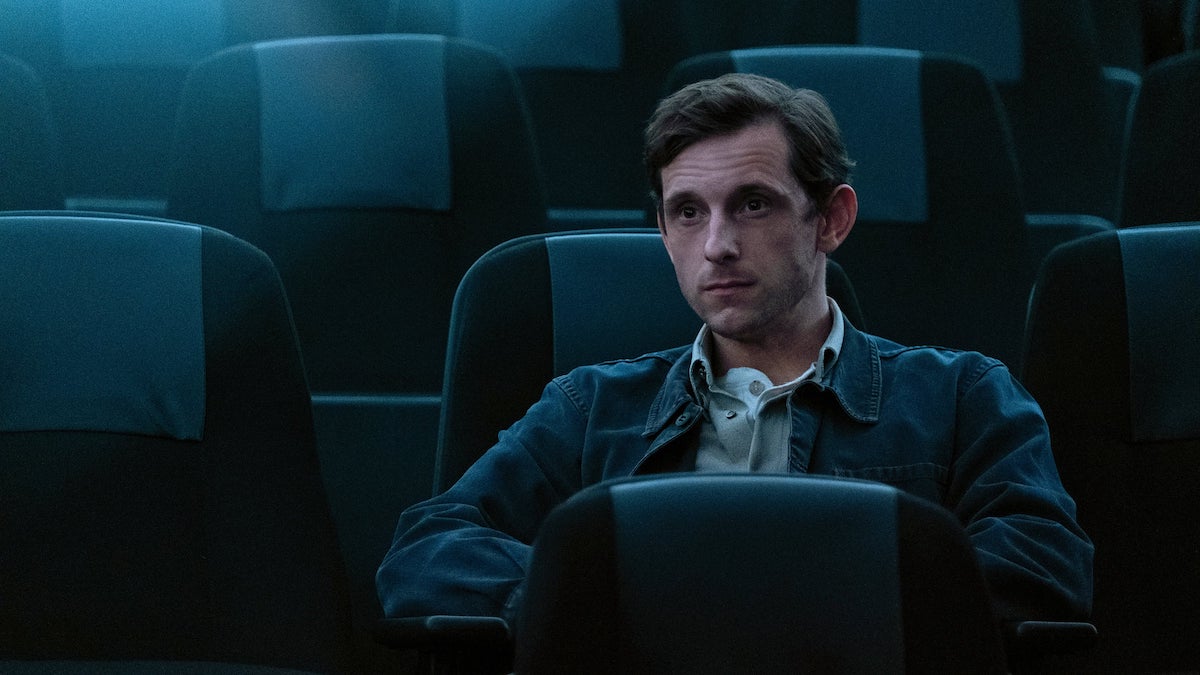
As a viewer, it takes intense concentration to keep a grip on all the timelines, but it plays out as a fantastic metaphor for trauma and reality, as anyone who’s been through trauma knows how it can derail one’s sense of self and time. Kirby often feels like nothing is where it should be and struggles to recognise her surroundings—sometimes it’s big changes like her apartment, other times it’s less significant ones like her desk switching places. Taking place in the early-1990s, this is a pre-#MeToo world where victim shaming is commonplace and women are rarely believed.
Shining Girls is a slow-burn that sags a little in the middle. A few of the revealing plot points should perhaps have been moved forward to help with the sluggish pacing. At first, the sleight of hands as reality and time folds over feels smart and rewarding but you soon long for something to be given a bigger meaning. The slow, hypnotic vibe will likely draw people in, watching out for the little details like they’re hunting down the Zodiac Killer. Others will be desperate for something more significant to unfold.
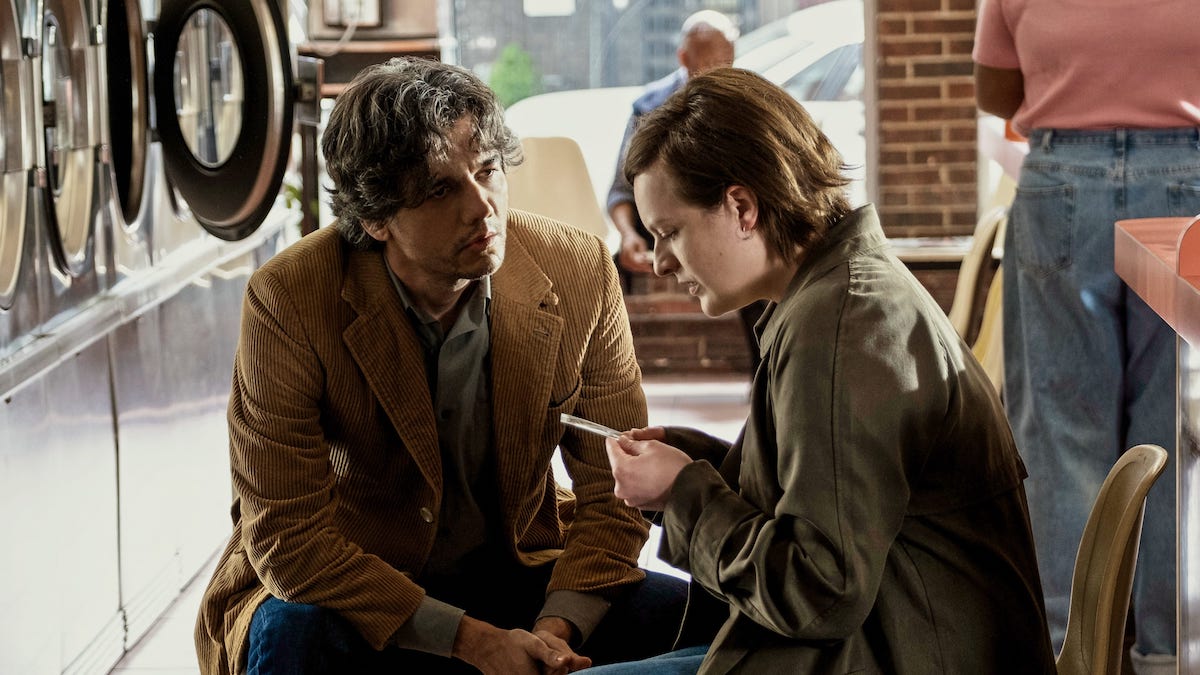
Moss elevates proceedings, as an actress who can say more with one look than most of her contemporaries can with three pages of dialogue. The unreliable world revolves around this unreliable narrator, so it’s vital that she can play the many different versions of our heroine. When she isn’t playing the hardened newspaper employee who was once on her way up, we met a younger version of Kirby with softer edges and shoulders that don’t carry the world.
Jamie Bell, who gave underrated performances Film Stars Don’t Die in Liverpool (2017) and Rocketman (2019), gives a subtle performance in a role with intentionally little dimension, as Harper is so charmless and devoid of recognisable qualities it’s how he gets away with his crimes. Bell comes into his own towards the end of the season, and in a lesser actor’s hands we’d care even less about his backstory.
Wagner Moura is good as troubled reporter Velasquez, but he’s the most forgettable part of this jigsaw puzzle. He falls into the cliché of the alcoholic but determined reporter, although his chemistry with Moss grounds an unoriginal part. Chalk, Soo, and Brenneman keep up with portraying the different versions of their characters, who appear in alternate realities throughout the eight episodes.
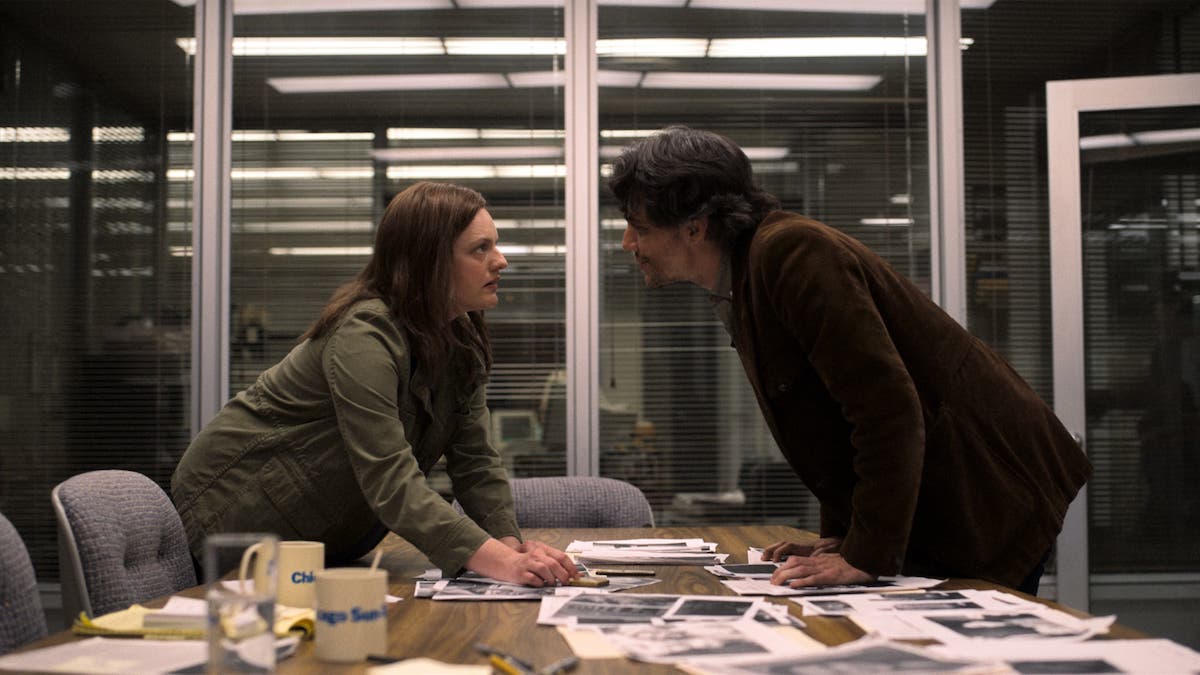
For a show about a woman-hating killer, women aren’t graphically tortured on screen. Any violence is told by women and shown off-screen. It’s no surprise the showrunner and directors are women because there’s a refreshing lack of sexualisation to the killing. It’s also a testament to the performance that you feel the horror and trauma without needing to see the crimes taking place.
Shining Girls is a mix of different genres and ideas wrestling for dominance. It takes half the series to fully understand what story it wants to tell and how it wants to impact its audiences, so it’s more of a star vehicle for Moss, who makes this into more of a character study than a Russian Doll-style exploration of alternate realities and time travel, or the Mindhunter-esque crime thriller it was promoted as.
If you can give your full attention and have patience, Shining Girls is a confident drama with a satisfying pay-off, plus a powerful metaphor for trauma and women not being taken seriously in the aftermath of a crime.
USA | 2022 | 8 EPISODES | COLOUR | ENGLISH

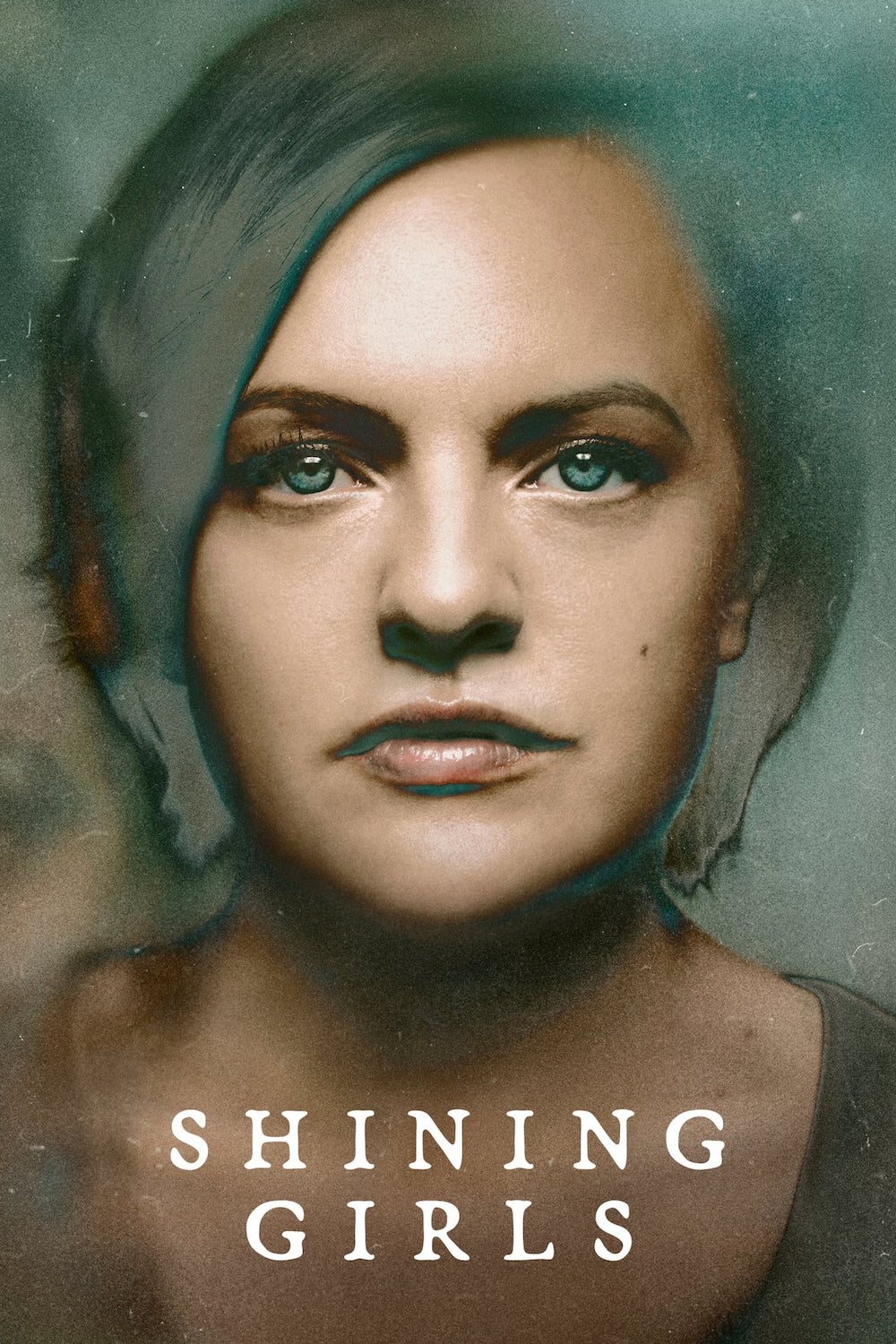
writers: Silka Luisa, Alan Page Arriaga & Lauren Beukes (based on the novel by Lauren Beukes).
directors: Michelle MacLaren, Daina Reid & Elisabeth Moss.
starring: Elisabeth Moss, Wagner Moura, Jamie Bell, Philipp Soo, Amy Brenneman & Chris Chalk.
